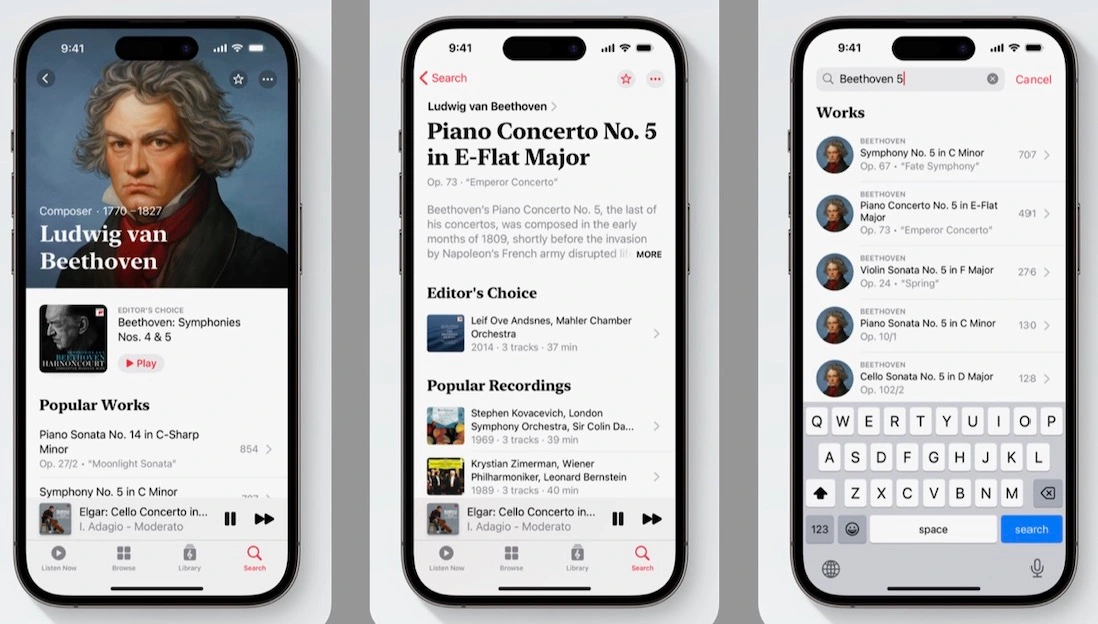Apple’s dedicated classical music application, Apple Music Classical, is now accessible to Android users. Following its acquisition of the classical music streaming service Primephonic in 2021, Apple announced plans to launch a standalone classical music app by year’s end. However, the release was postponed by a few months, eventually making its debut on iPhone devices in March 2023. The app is now available for download from the Google Play Store.
The launch of Apple Music Classical on Android devices precedes the release of an optimized version of the app for the iPad and Mac. The swift roll-out on Android is largely attributed to the fact that Primephonic already had an app on the operating system, paving the way for Apple Music Classical to simply take its place.
Apple Music Classical can be accessed via a subscription to Apple Music or Apple One. The app boasts ad-free classical music recordings in high-resolution audio quality, supporting up to 192 kHz / 24-bit lossless audio. It also offers thousands of recordings that support spatial audio. Furthermore, the app has retained Primephonic’s detailed music metadata, simplifying the browsing experience through its extensive library of tracks.
Despite its impressive features, the app has received some criticism in user reviews. Apple Music Classical lacks the ability to create “radio stations” based on individual works or composers, a feature offered by many traditional music streaming services. Furthermore, the app doesn’t support direct music downloads. Instead, users have to resort to downloading tracks, albums, and playlists via the Apple Music app that they’ve added to their Apple Music Classical library. For audiophiles seeking to optimize their lossless listening experience, utilizing Apple Music Classical’s high-resolution tracks can prove challenging due to the limitations of the iPhone itself and the need for an external DAC (digital-to-analog converter).
The app’s search function has also been noted as potentially confusing for new users or those less technically inclined. Nevertheless, it offers an array of ways to discover new music and effectively uses metadata to facilitate the exploration of its vast collection of artists, compositions, and genres.
The app has been rated an 8 out of 10 by How-To Geek, indicating that it is “fantastic, approaching best-in-class”. Despite some missing features and potential confusion with the search function, it is seen as a promising start for classical music enthusiasts seeking a more streamlined way to satisfy their music needs. It offers a polished and inviting interface, several ways to explore, and hi-res and spatial audio options. Moreover, it is available free with an Apple Music subscription and provides millions of tracks.
Given the ongoing evolution of music streaming services, Apple Music Classical’s entry into the Android market marks a significant milestone in providing classical music aficionados with a dedicated platform to indulge in their passion. As Apple continues to refine and enhance its features, the app holds promising potential to strengthen its position in the realm of classical music streaming.

